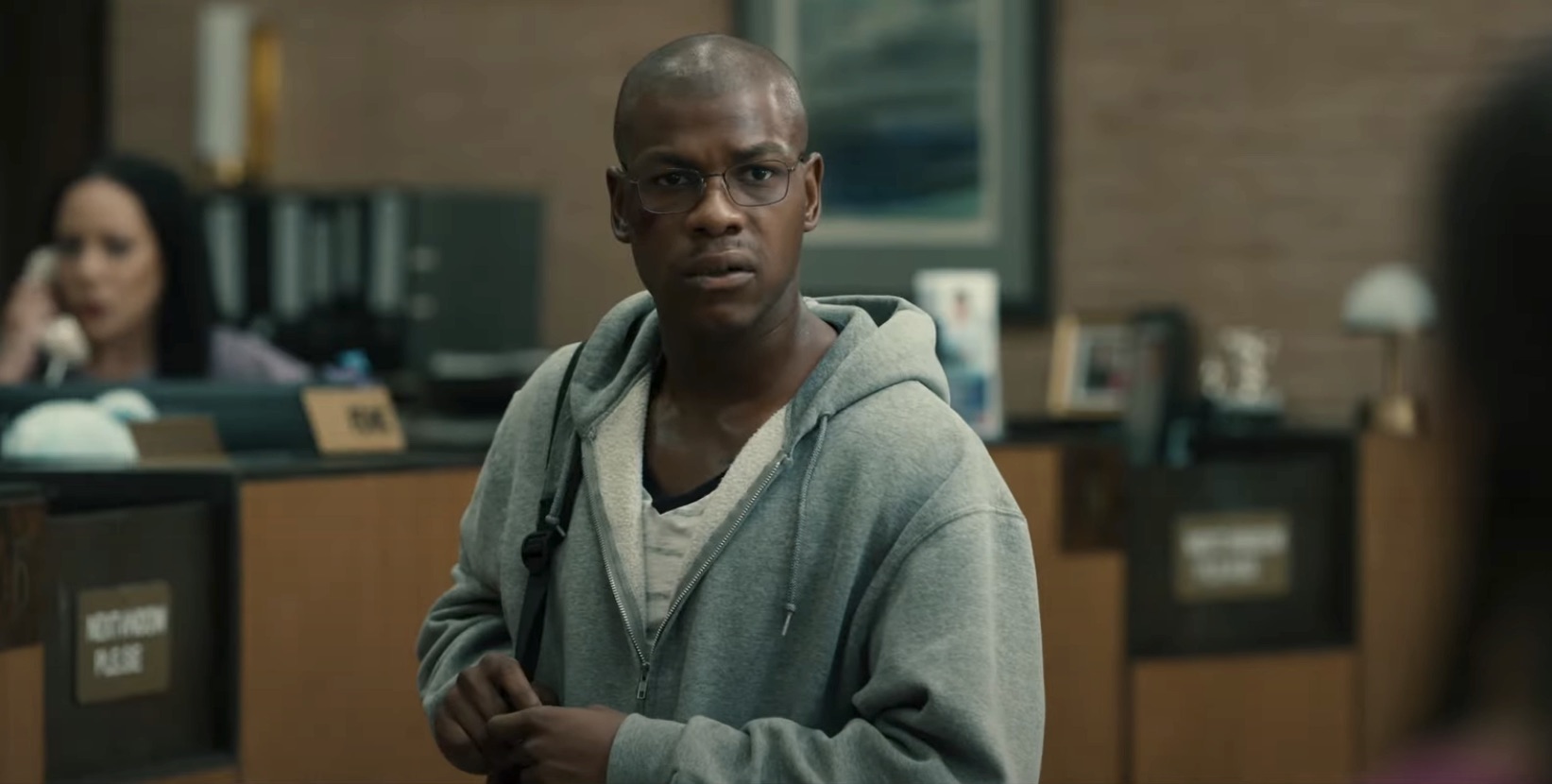The pitch for Breaking is clear: modern Dog Day Afternoon. There’s a bunch of 70s DNA in Breaking in general, placing the movie a bit out of time, but in a good way. And as sacrilegious as it might be to compare John Boyega and Nicole Beharie to Al Pacino and John Cazale, after watching what the new generation can do they earn that comparison with their brilliant work.
Since serving in the Marines, it’s been nothing but rough times for Lance Corporal Brian Brown-Easley (John Boyega). The VA has been taking his disability payments, he’s now separated from his wife Cassandra (Olivia Washington) and daughter Kiah (London Covington), and has run out of money for his temporary housing and even his cell phone to call his daughter. Frustrated and with nowhere else to turn, Brian goes to an Atlanta Wells Fargo, straps a bomb to himself, and threatens to blow up the building until his demands are met. Brian takes two hostages, bank teller Rosa (Selenis Leyva) and bank manager Estel (Nicole Beharie), which draws in multiple law enforcement agencies, including chief negotiator Eli Bernard (Michael K. Williams).
Even though the obvious comp is Dog Day Afternoon, the movie I was more thinking about watching Breaking was The Taking of Pelham One Two Three. Breaking is a lot about bureaucratic institutions: what they are designed to do vs what ordinary people hope they do. Everyone in a leadership position that Brian talks to is like the darkest possible version of Walter Matthau’s character from Pelham. These leaders are entirely self serving: Connie Britton’s news helpline operator turns Brian’s plight into her way to position herself as the story instead of him. The VA is only trying to get their money. And law enforcement sees this as their shot to be a hero and shoot the “bad guy.” No one here is actually listening to Brian, and when they do, there’s protocols and lawyers of bureaucracy that have to be shed to get things moving, and moving bureaucracy? Not a fast endeavor. It’s completely disheartening to watch Brian resort to these extreme measures just to have his voice heard, and even that isn’t enough to make the machine really actually care about him.
A lot of the success of Breaking is due to the ever surprising John Boyega. All the innate intensity in Boyega’s previous performances is present in Brian Brown-Easley. But what makes this performance more electric is the coiled exasperation Boyega gives the character. Were he not in dire straits, it would be easy to see Brian as a meek good guy trying to right by his daughter and ex-wife. But through extensive flashbacking Boyega shows how the frustration and stress has built up inside him, releasing in spurts when he can’t contain it anymore. Boyega makes you feel every emotion going through him in that Wells Fargo: anger, frustration, paranoia, sadness, lament, etc as he takes you on a riveting, emotional ride. It probably helped to have the late Michael K. Williams, Omar himself, on set to bounce ideas off of for the role. Williams has a small role, but is perfectly solid in it: he will be missed. Selenis Leyva and especially Nicole Beharie get long overdue chances to show their moxie on the big screen. Orange Is the New Black Leyva is the audience surrogate, terrified and frozen in fear, but playing the part more interestingly than just “scared person.” Nicole Beharie has been a favorite actor of mine for a while, and she relishes her role in Breaking. Of the 3 people in that bank, she’s she one that has the calmest head on her shoulders, taking in the information as it comes and always trying to work the best angle for her and Rosa to try to escape unscathed. Plus, she nails her multiple “for your consideration” Oscar moments.
Despite the heavy subject matter, I hope people give Breaking a try. The movie will keep you locked in with the intense standoff, and keep you riveted with the incredible acting and salient points it’s making about society at large. At least, you should watch for that metaphorical passing of the torch from Michael K. Williams to John Boyega, honoring what was lost and admiring what’s in store for the movies in the future.

